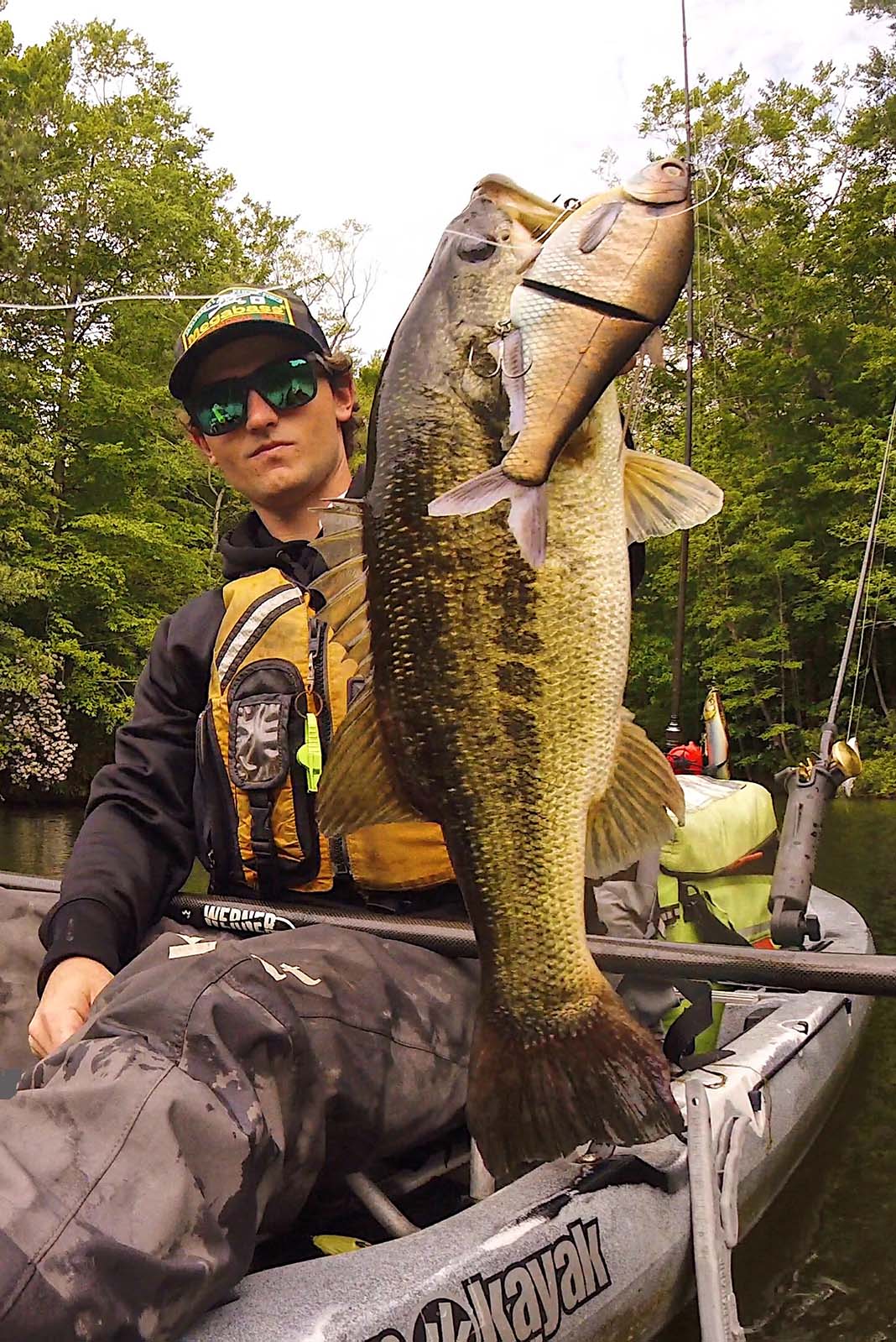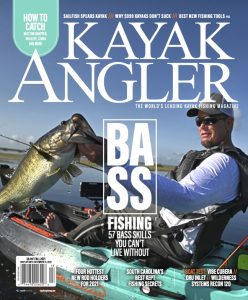Products You May Like
There is an old adage: big baits catch big fish. That’s true with the latest generation of swimbaits. These huge baitfish imitations can be eight inches long with three or four sets of treble hooks. We caught up with largemouth bass angler Drew Camp to find out what he slings for swimbait success.
Best Bass Fishing Baits and Lures: Swimbaits

Drew Camp learned to love swimbaits while fishing the College B.A.S.S. and FLW trails. “Swimbaits aren’t for everyone,” he says.
Casting and retrieving a six- to eight-inch lure hundreds of times can be hard work. But the big swimbait weeds out small fish, giving Camp a better shot at finding a tournament winner. He says, “I use a big bait to look for a big bite.”
Below are Camp’s suggestions on when to use and how to choose a swimbait, plus tackle box tips and much more.
When to Use a Swimbait
Some of my best days swimbait fishing are when the water is clear and there is a decent breeze blowing. Not only does wind confuse the bait, but it breaks up the light to make the lure look more attractive. Also, I can cast a huge lure farther in the wind.
Fishing windblown banks and points in a kayak is tricky, so I anchor off of the area I want to fish and make long casts over the spot. This allows me to fish slowly and methodically.
How to Choose a Swimbait
If the water temperature is above 50 degrees, I will throw a hard bait or glide bait such as a PhoneyFrog or DEPS 250. These lures draw a reaction strike. When the water is warmer, bass are more willing to commit to chasing down a big meal.
Once the water drops below 50, I’ll incorporate soft baits into my lineup. Soft swimbaits are designed to fish as slow as possible. I like slower sinking baits because I fish a lot of shallow grass lakes. I can rig the lure to slowly swim just above the grass.
Swimbait Tackle Box
Rod: 8’ Megabass Orochi XX Leviathan
Reel: Shimano Calcutta 200GTB
Best Bass Swimbaits to Buy

Soft Baits

Hard Baits
How to Use a Swimbait
The most important thing to do is fish the swimbait slowly and carefully. As the water temperature drops, the slower you fish the lure, the higher your catch rate.
With soft baits, the retrieve is simple, just throw the lure out and reel it back in. With a hard bait, I use a steady retrieve, or twitch, twitch, pause like a jerkbait. Play around with sink rate, colors and retrieve. Something as simple as swapping out the hooks can make the lure swim differently to get more bites.
Swimbait Memories
When I was in college, the professor canceled my morning class and I was gifted three hours to fish before my next class. I loaded my kayak into the truck and went to the closest lake to campus. I only had one rod and a PhoneyFrog Glide shad.
After fishing two hours without a bite, I decided to head in so I wouldn’t be late for class. As I pulled back up to the ramp, I made one more cast near a downed tree. Right before I worked the lure to the kayak it was hammered by a big fish.
After a short but chaotic battle, I had my new personal best bass in my lap. She weighed over 10 pounds. After a few pictures, I released her back into the lake. I was so stoked, I nearly forgot about class.

This article was first published in Kayak Angler Issue 46. Subscribe to Kayak Angler and get the magazine delivered to your front door. Download the Kayak Angler Magazine+ app to seamlessly glide between the digital archives, the latest articles and videos.
Largemouth bass have a large mouth for a reason, and the right swimbait will have them opening wide. | Feature photo: Drew Camp
